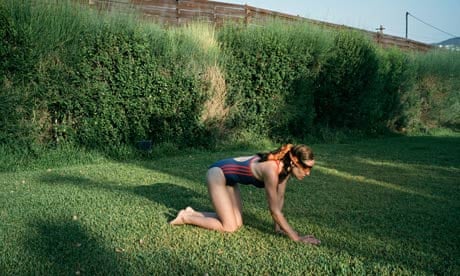We love our children, our partners, and we want to protect them — keep them safe, keep them from pain and failure and disappointment. It’s understandable. And yet, it’s probably the worst thing we can do for them.

That, in part, is what struck me when I read Claire Cain Miller’s latest article in the New York Times, The Relentlessness of Modern Parenting, on the hyperintensive kind of child-rearing that’s stressing out kids and parents (well, mostly moms), that we imagine will guarantee that children will get ahead, or at least not fall behind:
It starts in utero, when mothers are told to avoid cold cuts and coffee, lest they harm the baby. Then: video baby monitors. Homemade baby food. Sugar-free birthday cake. Toddler music classes. Breast-feeding exclusively. Spraying children’s hands with sanitizer and covering them in “natural” sunscreen. Throwing Pinterest-perfect birthday parties. Eating lunch in their children’s school cafeterias. Calling employers after their adult children interview for jobs.
Clearly, it’s done with best intentions, even if it’s driven by fear, as Kim Brooks so beautifully expresses in her op-ed, Motherhood in the Age of Fear and book, Small Animals: Parenthood in the Age of Fear. But as a cognitive scientist tells her, children “have the right to some freedom, to some independence [and] to a little bit of danger.”
They do.
And yet, we fear letting them experience sadness, failure, pain, grief, frustration. Isn’t in crippling them, in a way, to keep them from feeling the whole of the human experience?
The downside of being too protective
Nothing comes close to illustrating that better than Dogtooth, the 2009 movie by Yorgos Lanthimos. Just as 2016’s The Lobster explores coupledom and the desperate things we do to avoid loneliness, Dogtooth questions the lengths parents go to protect their precious children from the hardships and ugliness of the world. Both are dark, disturbing, oddly funny and absurd, but in many ways very true to life.
Three teens, a son and two daughters, are basically held hostage by their father, with their mom complicit, in their spacious but barricaded home, and raised in ignorance of the world outside. They are lied to and given false definitions of words, often to comic effect. It’s not far from what all parents do. As a Guardian review notes, the film suggests that “there is lurking in all societies a desire at every level to control what young people believe and understand. And this extends from apparently innocent practices like expecting presents from Santa Claus and teaching them childish euphemisms for physical functions, to the inculcation of religious beliefs, social practices and taboos intended to last a lifetime.”
Good intentions, questionable results
But it’s not because we have nefarious reasons. As Lanthimos states, the parents’ intentions — as most parents’ intentions — are good.
For me, to them, they’re doing this thing out of love. And they come up with all these ridiculous ideas to protect them and to lie to them so that they can protect them. They think it’s the best thing that they can do for their children. I think that they’re so stupid, that they actually believe that.”
In truth, isn’t that what all of us do — not just to children, but also to our romantic partners? Because we love them, we hide things from them — often our truth — or behave poorly, all because we want to “spare them pain.” We believe we can divorce- or affair-proof our relationship by monitoring our partners, or setting rigid restrictions on them — no porn watching, no looking at attractive people, no flirting, no friends of the opposite sex — or on ourselves.
And it’s all done out of love. And it often backfires.
Maybe we are stupid to actually believe that it won’t.
Want to know how to speak honestly in your marriage? (Of course you do!) Read The New I Do: Reshaping Marriage for Skeptics, Realists and Rebels (Seal Press). You can support your local indie bookstore or order it on Amazon.
















